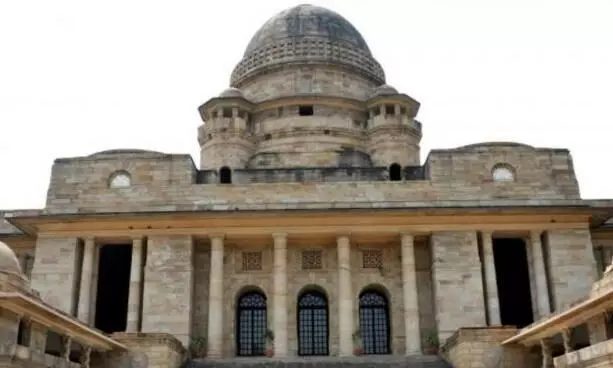
Mere Possession And Recovery Of Currency Notes Without Proof Of Demand Would Not Establish Offence: Bombay High Court
 |
|The Bombay High Court acquitted a man, (at the time in question, was Sub Registrar in Akola) of corruption charges in an appeal that challenged the judgment of conviction and sentence, passed by a Special Judge in Akola, Maharashtra. The accused in this case had been convicted for offences under Sections 7 and 13(2) of the Prevention of Corruption Act, 1988.
A Bench of Justice Urmila Joshi-Phalke emphasized that proving the demand for illegal gratification is a crucial element in such cases, and without proper proof of demand, the mere recovery of currency notes from the accused is insufficient to establish the offense. The Court held, “It is well settled that mere possession and recovery of currency notes from accused without proof of demand would not establish an offence under Section 7 as well as Section 13(1)(d)(i)(ii) of the said Act.”
The complainant an agriculturist, visited the Sub Register's office to execute a Sale Deed for land he intended to purchase. He was informed that he needed permission from the Sub Divisional Officer for this transaction. The accused allegedly demanded Rs. 700 as a bribe to process the deed. The complainant reported this to the Anti Corruption Bureau. In the planned raid tainted currency notes were recovered from the accused, and a case was filed against him after due investigation.
Advocate Ved Deshpande appeared for the Appellant and Advocate A.M. Kadukar appeared for the Respondent.
The defense argued that there was no valid sanction for prosecution, and the complainant did not fully support the prosecution's case. Additionally, certain key witnesses, who could have testified to the earlier demand, were not examined. The defense claimed that the accused and the complainant had a prior loan transaction, and the money was given as a hand loan.
The prosecution countered by asserting that the tainted money was recovered from the accused, and both the complainant and another witness testified to the demand and acceptance of the bribe. They argued that the sanction was valid and that the accused failed to rebut the presumption of guilt.
The primary issue before the Court was as to whether the sanction was valid. The Court stated that whether the sanction is valid or not and when the sanction can be called as valid, the same is settled by the various decisions of the Apex Court. The Court referred to Mohd. Iqbal Ahmad v. State of Andhra Pradesh and CBI v. Ashok Kumar Agrawal, which highlight the importance of proper application of mind by the sanctioning authority and the need to consider all relevant materials.
The Court stated that the sanctioning authority is required to apply its own independent mind and carefully evaluate all the relevant facts and materials before granting sanction. The Court noted that in this case, the sanctioning authority's order did not adequately demonstrate that it had applied its mind and considered all relevant materials before granting sanction.
The Court remarked, “In view of the settled principles of law, it is crystal clear that the sanctioning authority has to apply his own independent mind for generation of its satisfaction for sanction. The mind of the sanctioning authority should not be under pressure and the said authority has to apply his own independent mind on the basis of the evidence which came before it. An order of sanction should not be construed in a pedantic manner.”
The Court noted, “the sanction order nowhere reflects that he has applied his mind by considering the documents which he has mentioned in his deposition and it also not discloses on what basis he came to conclusion that the sanction is to be accorded to launch prosecution against the accused. There is no finding by learned Judge of the trial court as to the validity of the sanction.”
Additionally, according to the Court the prosecution's evidence regarding the demand for illegal gratification was not sufficiently convincing and lacked corroboration, as both the complainant and the witness provided conflicting testimony that did not support the charge.
Furthermore, the Court noted that the absence of an independent witness to testify about the prior demand by the accused weakened the prosecution's case.
Given these factors and the doubt surrounding the demand for illegal gratification, the Court found that the prosecution had not proven its case beyond a reasonable doubt. The Court observed, “Since proof of demand is sine qua non for convicting accused in such cases, in the present case, it cannot be said that the prosecution has been successful in proving its case beyond reasonable doubt.”
Consequently, the court acquitted the accused of the charges setting aside judgment and order of conviction and sentence passed by Special Judge, Akola. The appeal was allowed.
Cause Title: Mohan Bhaiyyalal Shrivastava v. The State of Maharashtra, 2023:BHC-NAG:13142
Click here to read/download Judgment